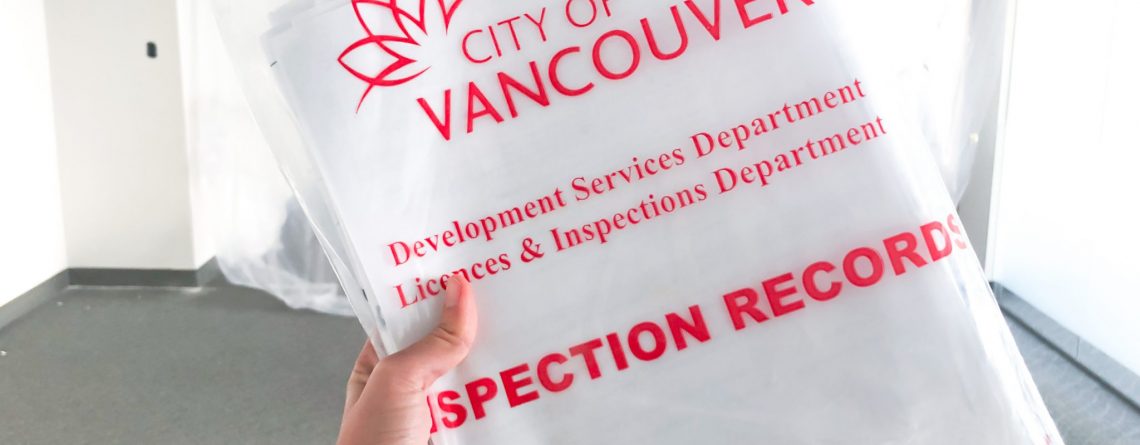Commercial Building Inspections
In the last blog, we talked about commercial building permits, when you need them, how much it costs, and the process to get the permit. In today’s blog, we will discuss building inspections, which is one of the most important aspects of any construction project followed by building permits.
Building inspections are generally conducted during different stages of the project to ensure that things are moving smoothly and to guarantee that the work performed meets the City’s requirements, regulations, and standards. In addition, building inspections must be completed and approved periodically in order to continue with other scopes of work.
Once construction is complete, the building receives a final inspection and follow-ups to ensure that all statutory regulatory standards have been met and each time the space or building changes ownership that can follow up on a structure change; you may need to proceed with a new inspection based on the new work.
Why are the inspections necessary?
As briefly mentioned before, building inspections help ensure that any construction, renovation, and alteration of the space is in compliance with the appropriate building codes and city statutes, and ensures that the work performed is consistent with the approved permit and documentation.
Also, commercial buildings must provide safe and secure environments for workers, which is why inspections are a key element to secure life safety, accessibility, and sustainability
Type of Inspections
The complexity of buildings and modern technologies often means that multiple inspections of a building are required, and some additional items may be necessary for certain spaces. For example, some facilities may require inspections for particular systems within the building, including:
Plumbing Inspection
In this type of inspection, the designated inspector will ensure that there is a successful connection to the city’s plumbing systems, as well as checking water filtration systems, examine fixtures, supply lines, drains, and all exposed plumbing above ground, such as valves.
The inspector will ensure that the work outlined in the plumbing permit, which includes construction approvals, drawings, and more, matches the work being done.
Electrical Inspection
There are 3 types of electrical inspections. The first one is when wiring, conduit, and electrical panels and boxes are installed, also called rough-in and occurs early in the construction project during the installation process and it is crucial to pass this inspection to close up walls or ceilings.
The second inspection is when the electrical service panels will be investigated to ensure proper installation and proper grounding.
Finally yet importantly, the final inspection, where all the switches will be placed in order and the inspector will ensure the overall functionality of the system, which must provide a safe and efficient power supply that fits the building or space.
HVAC Inspection
This inspection consists of a general review and evaluation of all components related to heating and cooling in the building, ensuring that the system and elements comply with state and federal codes and regulations.
Fire Sprinkler Inspection
This inspection is one of the most important because sprinklers are a key component of the fire protection system of the building. Fire safety routes, access fire escapes and fire extinguishers also compose the system. Typically, this inspection is done by the plumbing inspector primarily making sure that the location of the sprinklers within the space it’s correct and everything is aligned with what the permits describe.
What documents do I need for the inspection?
As for the document review, the documents that must be reviewed by the inspector include:
· Floor plans
· Building plans
· Appraisals
· Certificates of occupancy · Construction permits
· Surveys
· Evacuation plans
Who perform the inspections?
The building inspection is performed by a certified person, who is qualified to make a professional judgment on local building codes and city requirements. On the City of Vancouver website (https://vancouver.ca/home-property-development/inspections.aspx) you can find a map that provides a list of inspectors, with contact information, name, office hours, and email.
Fees
Inspection fees are included in the general permit fees, which you must have from the beginning of the project.
How to book an inspection?
If your construction or improvements are ready for a required construction inspection, you must arrange for a city inspector to inspect the work. Inspections in the City of Vancouver must be booked before 2:00 pm on the business day to be inspected the next business day. Inspections should not be cancelled after 2:00 pm. Inspections cancelled after this deadline may be subject to a re-inspection fee.
You can also do it online on the website of the city of Vancouver, following the instructions.
How to succeed in a commercial building inspection
Follow this checklist to make sure that your inspections goes as smooth as possible.
Before the inspection:


